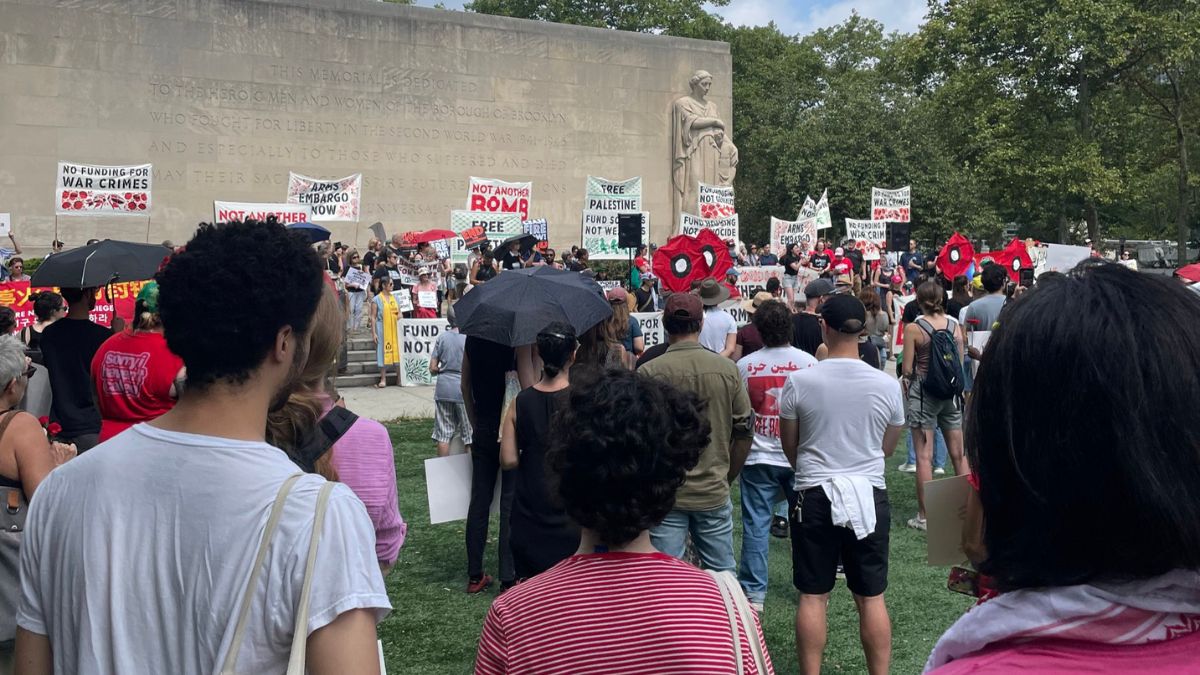US State Department says criticising Israel could be grounds for visa revocation
 Anti-Israel protest in the US | X
Anti-Israel protest in the US | X
A senior US State Department official testified on July 18 that his office, which has been overseeing the vetting of foreign students’ social media and visa statuses under the Trump administration, has done so without a clear definition of antisemitism. The testimony came during a federal bench trial in Boston, where the government is accused of pursuing an unconstitutional ideological deportation policy that targets pro-Palestinian voices in academia.
The official, John Armstrong, who heads the Bureau of Consular Affairs, acknowledged that the State Department routinely considered criticism of Israel when assessing student visa holders. Armstrong was responding to questions in a lawsuit filed by the American Association of University Professors and the Middle East Studies Association. The case centres on the removal or attempted removal of students such as Mahmoud Khalil of Columbia University, Rumeysa Ozturk of Tufts University, and others.
The plaintiffs argue that these actions form part of a wider strategy of political censorship.
Armstrong revealed that the State Department had held more than a dozen meetings with the White House, including with senior figures such as Homeland Security Adviser Stephen Miller, to discuss student visas. These discussions intensified in March, with over 20 inter-agency conversations involving the White House, Department of Homeland Security, Department of Defense and the State Department.
When questioned in court, Armstrong confirmed that speech seen as hostile toward Israel was considered during visa reviews. He cited statements such as support for an arms embargo on Israel, criticism of Zionism, or describing Israeli actions as “worse than Hitler” as examples that could prompt a recommendation for visa revocation. He said such comments could fall within the scope of his office’s scrutiny, depending on the context.
Pressed by Alexandra Conlon, a lawyer for the plaintiffs, Armstrong admitted that his bureau lacked any formal guidance or working definition of antisemitism. He said he could not recall any cable or directive that provided a definitive explanation. Instead, he claimed that decisions were based on the “totality of the situation” and described antisemitism as prejudices or actions against Jewish people or Israel motivated by hatred.
Judge William G. Young, who is presiding over the case, asked Armstrong to clarify his personal understanding of antisemitism. Armstrong said he believed that criticism of Israel could, in some cases, mask antisemitic intent. He expressed the view that some individuals who claim to oppose Israeli policies are actually disguising prejudice against Jews. However, he did not assert that criticism of Israel alone was sufficient grounds for deportation.
During testimony, Armstrong acknowledged that the State Department’s decisions sometimes relied on speech protected by the US Constitution. He maintained that the agency was attempting to prevent threats similar to previous terrorist attacks and suggested that misjudging such cases could have grave consequences. He referenced past incidents, including the 9/11 attacks and a Molotov cocktail incident in Colorado, as cautionary examples of what he termed the risks of leniency.
The trial also revealed that internal communications about visa revocations were fast-tracked at high levels. In one instance, an action memo proposing the revocation of visas held by Khalil and another student, Yunseo Chung, was cleared by ten officials within 24 hours before being sent to Secretary of State Marco Rubio for final approval.
The Trump administration’s policy on antisemitism in higher education stems from a January executive order that instructed federal agencies to monitor foreign students and staff for antisemitic conduct or links to terrorism. Armstrong said support for groups like Hamas would clearly lead to visa revocation, but critics have argued that the order has been used to suppress political speech critical of Israeli policies.
In a significant moment during the hearing, Judge Young addressed the substance of the administration’s claims. He rejected the argument that student criticisms of Israel automatically implied support for Hamas or other terrorist organisations. The judge said that such expressions were clearly political speech and therefore protected under the First Amendment.
The plaintiffs contend that the government’s approach has resulted in selective enforcement targeting pro-Palestinian students. The trial has brought into focus the blurred lines between national security, foreign policy advocacy and constitutionally protected expression. A verdict is expected following the conclusion of arguments next week.
Middle East